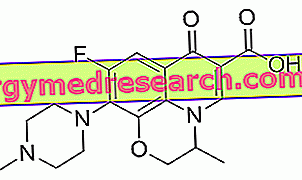Pyrosis is the term by which doctors identify the unpleasant sensation of discomfort, or burning type (burning) pain, felt behind the sternum with a tendency to irradiate towards the throat (sense of acidity rising).

Pyrosis is a fairly common symptom, which manifests itself in numerous circumstances. This annoying burning can in fact appear at any time, but it is more common about half an hour after a meal or long distance from it; it is often associated with dyspepsia (poor digestion) and in this case it is typically accompanied by nausea, eructations and regurgitation. Pyrosis also disturbs the sleep of many people, given that the rise of gastric juices in the esophagus is favored by the lying position; for the same reason, this symptom may also appear during particular movements of the trunk, such as the act of lacing up shoes or picking up an object from the ground. Finally, it is now established that the onset of heartburn, or at least its aggravation, is often related to emotional factors.
Beyond the individual and isolated episodes of heartburn, experienced by the majority of individuals, the repeated onset of this symptom tends to assume pathological connotations. In most cases, in fact, this symptom is a sign of gastroesophageal reflux, a condition characterized by the abnormal ascent of the acid content into the esophagus. The underlying causes of this reflux can be multiple and overlapping: the incontinence of the gastroesophageal sphincter, the hiatal hernia and the alterations of the tone of the esophageal or gastric musculature are the most common causative agents.
| Major causes of heartburn | Potential aggravating factors |
| Gastroesophageal reflux (with or without hiatal hernia) Esophageal spasm, sudden dilation and spastic contraction of the lower esophageal sphincter Scleroderma Gastritis Peptic ulcer Neoplasms with secondary impairment of sphincter function Gastrolesive drugs (for example NSAIDs, such as aspirin and ibuprofen, some sedatives and some antihypertensives) | Cigarette smoke Coffee (better the decaffeinated one) and other caffeine-based drinks Carbonated or particularly hot drinks Foods such as onions, tomatoes, sour sauces, citrus fruits, chocolate, spirits, mint and particularly fatty or spicy foods. Overweight or obesity. Lie down or perform physical activity a short distance from a meal. Stress, depression, anxiety and hypochondria. Aerofagia (typical of those who eat too quickly or talk a lot while eating). Pregnancy |
The diagnosis of reflux disease is mainly clinical. Usually the doctor diagnoses GERD only after excluding other pathological conditions, such as heart problems or hiatal hernia. If these findings are negative and the symptoms persist, treatment with antacid drugs is started. If the patient's response to these drugs is positive, further tests are not normally necessary. If, on the other hand, the symptoms persist or reappear at the end of the therapy, further investigations should be carried out, taking advantage of instrumental investigations such as the esophagus-gastroduodenoscopy, pHmetry, esophageal manometry and biopsy (to ascertain the absence of complications, such as the Barrett's esophagus).

Intake of antacid drugs is generally sufficient to resolve heartburn. For this purpose the common bench antacids (sodium bicarbonate, calcium carbonate, aluminum or magnesium hydroxide), the histamine H2 receptor antagonists, the alginates or the most modern proton pump inhibitor drugs can be used. The preventive intervention of heartburn through behavioral and dietary norms (see diet and gastroesophageal reflux) is fundamental, before moving on to the pharmacological treatment or otherwise tackling it.



